The discussion was moderated by Mr. David McGinty, Global Head of Regional and Country Office Network, World Resources Institute; and discussed by Ms. Tu Ngo, Managing Partner of Touchstone Partner Vietnam; Mr. Justin Wu, Managing Director and Head of Climate Change, Asia-Pacific and Global Sustainability, HSBC Bank; Ms. Shameela Soobramoney, CEO of the National Business Institute of South Africa; and Mr. Min Alexander Myoung Joon, CEO of RE:harvest.
Representatives of businesses, financial institutions and investors from many countries participated in the discussion on barriers and development directions for startups. (Photo: Ngoc Anh) |
At the event, Ms. Tu Ngo, Managing Partner of Touchstone Partner, said that the climate start-up ecosystem in Vietnam is growing strongly thanks to the coordination of many stakeholders. Therefore, when choosing young businesses to invest in, the important thing is not only a viable business model or potential market, but also the human factor.
“As a former startup founder, I understand that the first thing investors look for is a big enough market and a good enough team. However, in reality, we have to talk to thousands of teams every year, and finding a team that really meets all the criteria is not easy,” she shared.
Unlike banks that can rely on financial data to make their judgments, venture capital funds like Touchstone Partners put their faith in “soft factors” — entrepreneurs they can work with, solve problems with, and trust.
According to Ms. Tu Ngo, currently green startup models are often divided into two groups: The first group is models that have proven their effectiveness in the market such as solar power and smart agriculture; the second group is deep-tech businesses, owning patents or exclusive technologies that can contribute greatly to the goal of decarbonization and green transformation.
“Innovations such as turning waste into high-value materials or intellectual property to reduce emissions are promising models but also challenging to attract early investment. For these businesses, we need to put our trust in their long-term vision,” she added.
Touchstone Partner Management also expressed its expectation to continue direct dialogue with businesses at in-depth sessions within the framework of the Conference, thereby expanding opportunities for connection and finding strategic investment partners.
Overview of the discussion session. (Photo: Ngoc Anh) |
At the discussion, Mr. Justin Wu, Managing Director and Head of Climate Change and Global Sustainability for Asia-Pacific at HSBC Bank, shared his perspective on the bank's role in the green transformation journey and supporting innovative startups.
Mr. Justin Wu pointed out that HSBC considers accompanying customers in the green transition process, while supporting the formation of a new economy based on technology and sustainable business models, as two important strategic pillars.
In its more than 150-year history of operations in Vietnam and Asia, HSBC has witnessed many businesses starting from small ideas, then transforming into large corporations. “We have always considered ourselves a bank for businesses - especially businesses with aspirations and dreams,” he emphasized.
When talking about climate tech startups, Mr. Wu said that HSBC is implementing many initiatives in the region such as HSBC Innovation Banking or Pentagreen - an investment fund for infrastructure projects that are difficult to raise capital...
Related News |
|
However, he frankly admitted that, on the journey from idea to commercial scale, start-ups will face many barriers, from cash flow, operational capacity, to legal barriers.
“We understand that many businesses are receiving capital from various sources such as private funds, grants from non-profit organizations, or initiatives such as P4G. Therefore, the role of banks is not only to lend, but also to ‘hold their hands’ through the first stages,” Mr. Wu affirmed.
According to Ms. Shameela Soobramoney, General Director of the National Institute of Entrepreneurship of South Africa, start-ups often have difficulty building a clear business plan.
“Many businesses simply think they need an investor, but don’t understand what investors are looking for. So we have organized meetings between startups and investors in a safe space where they can present their ideas and receive direct feedback. This helps to reduce the pressure on startups, no longer feeling like this is the only opportunity to raise capital, but instead a process of learning and improving,” she said.
Another major challenge is navigating the regulatory environment, which often creates a disconnect between policy and practice. Soobramoney cited South Africa as an example, where import duties on electric vehicles are 34%, while those on internal combustion engines are only 18%. The South African National Business Institute acts as a policy bridge, providing feedback to the government to correct inappropriate barriers.
However, she also pointed out a common bottleneck: The financial gap for early-stage small businesses.
“Many companies have potential but are not yet large enough to reach the next round of funding. While high-growth businesses are often sought after by investors because the problem of profit is already in sight, small businesses need a push to overcome the ‘valley of death’ - the most easily forgotten moment in the startup journey,” Ms. Soobramoney affirmed.
P4G has gone through three Summits hosted by Denmark (2018), Korea (2021) and Colombia (2023) and the fourth in Vietnam (2025), continuing to affirm P4G's determination to contribute to the green and sustainable development of the region and the world, for a green planet and a green future. (Photo: Viet Hoang) |
In addition, Mr. Min Alexander Myoung Joon, CEO of RE:harvest, a Korean start-up pioneering in recycling food waste into valuable products, said that “creating change is just the first step, the more important issue is how to maintain and expand this impact in a sustainable way”. Above all, the biggest challenge that start-ups face today is to build a bridge between the need to create impact and the need for long-term investment. Not only revenue, but also policy impact, carbon credits and shaping a sustainable future are the “added value” that investors expect.
Mr. Joon also emphasized the gap in the startup ecosystem of developing countries, especially the absence of government-sponsored funds of funds. According to him, the private sector cannot “single-handedly” shoulder the entire role of incubation and growth for startups, especially in the context of the low rate of startups passing the first rounds of funding. If there were investment funds focusing on long-term value, the ability to raise capital would be more realistic and sustainable.
According to Mr. Joon, he also acknowledged that policy plays a crucial role in “minimizing investment risks”. However, removing policy risks should not be the sole responsibility of start-ups, but requires the active participation of management agencies. Start-ups can build flexible scenarios but need to be supported by a more entrepreneurial, flexible and practical policy-making mindset.
In the discussion that followed, experts also agreed that in addition to financial support, there should be a mechanism for start-ups to be tested in practice through pilot projects, thereby helping policy makers grasp the current situation and make appropriate decisions. At the same time, financial institutions and policy agencies themselves need to change their mindset, become more proactive, flexible and entrepreneurial, thereby creating conditions for innovative solutions to develop.
The discussion sessions on "Promoting climate technology: The role of public-private partnerships", "Promoting investment for new startups in emerging economies", along with investment and business connection activities, the meeting of national representatives of P4G member countries, sessions connecting startups and investors... on April 14-15 are the opening activities of the fourth P4G Summit in Hanoi. The official opening ceremony will take place tomorrow afternoon, April 16, under the chairmanship of Prime Minister Pham Minh Chinh. This is the first time Vietnam has hosted the P4G Summit - a multilateral cooperation mechanism initiated by Denmark in 2017 and with the participation of 8 other member countries: Vietnam, Korea, Ethiopia, Kenya, Colombia, the Netherlands, Indonesia, South Africa and 5 partner organizations: World Resources Institute (WRI), Global Green Growth Institute (GGGI), C40 network (C40 cities), World Economic Forum (WEF) and International Finance Corporation (IFC). |
Source: https://baoquocte.vn/hoi-nghi-thuong-dinh-p4g-2025-bac-cau-tim-von-cho-giac-mo-xanh-311239.html


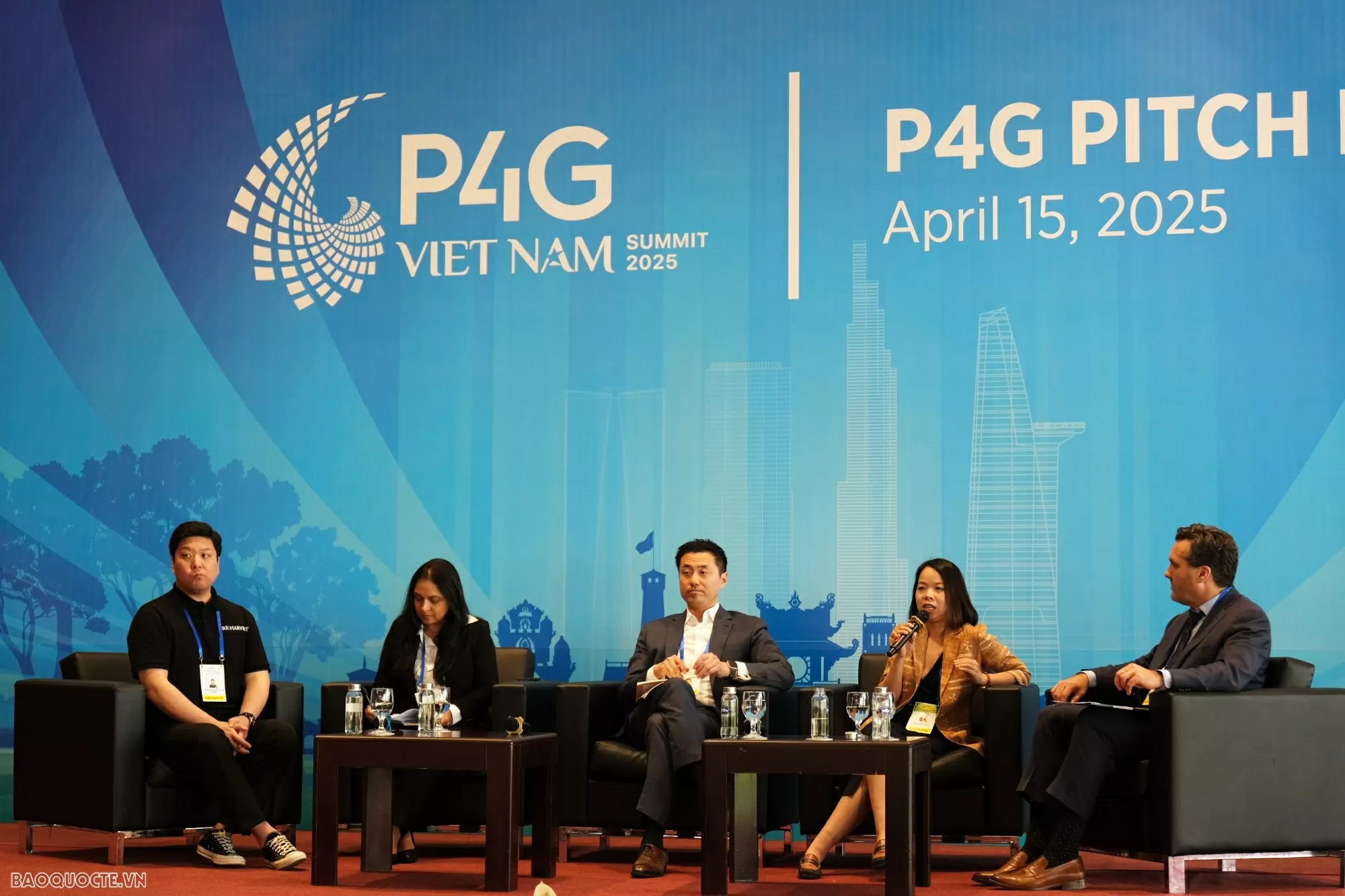
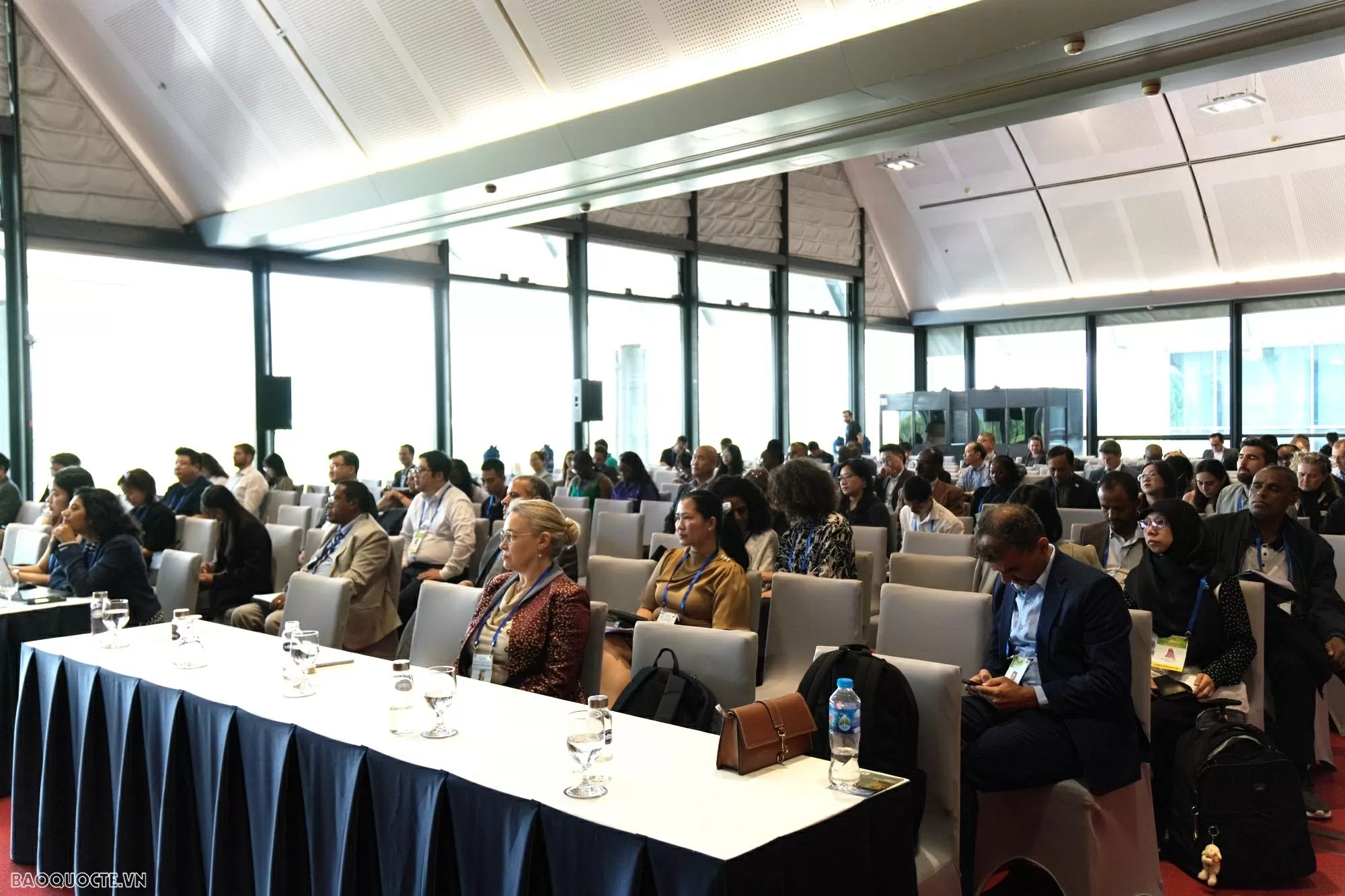

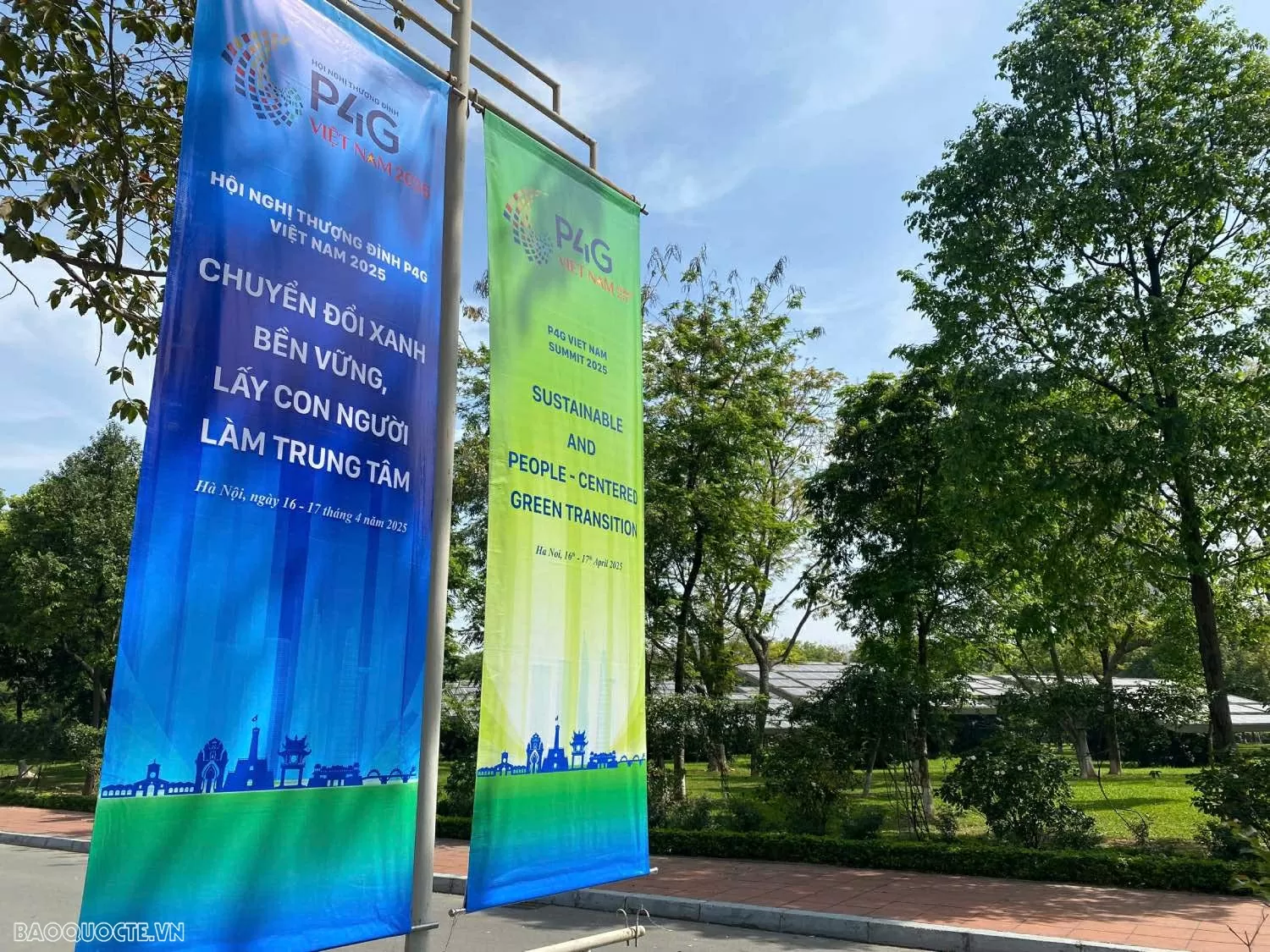
![[Photo] Prime Minister Pham Minh Chinh meets with the Policy Advisory Council on Private Economic Development](https://vphoto.vietnam.vn/thumb/1200x675/vietnam/resource/IMAGE/2025/5/8/387da60b85cc489ab2aed8442fc3b14a)
![[Photo] President Luong Cuong presents the decision to appoint Deputy Head of the Office of the President](https://vphoto.vietnam.vn/thumb/1200x675/vietnam/resource/IMAGE/2025/5/8/501f8ee192f3476ab9f7579c57b423ad)
![[Photo] National Assembly Chairman Tran Thanh Man chairs the meeting of the Subcommittee on Documents of the First National Assembly Party Congress](https://vphoto.vietnam.vn/thumb/1200x675/vietnam/resource/IMAGE/2025/5/8/72b19a73d94a4affab411fd8c87f4f8d)
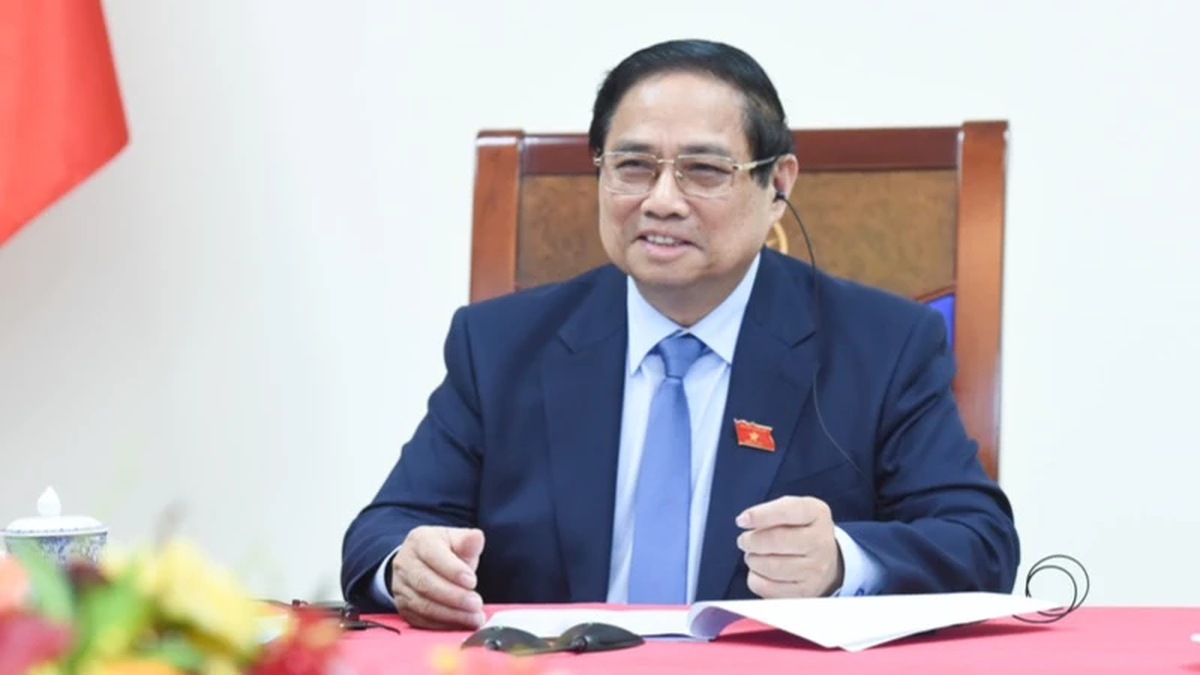

![[Photo] General Secretary concludes visit to Azerbaijan, departs for visit to Russian Federation](https://vphoto.vietnam.vn/thumb/1200x675/vietnam/resource/IMAGE/2025/5/8/7a135ad280314b66917ad278ce0e26fa)
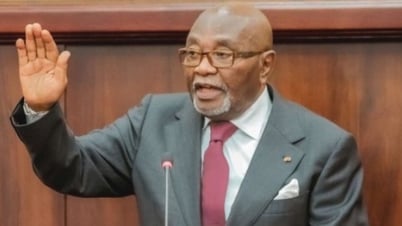


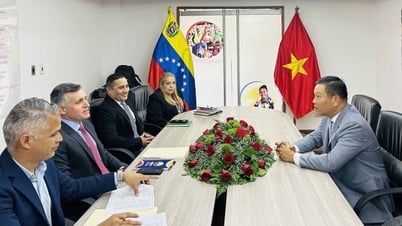







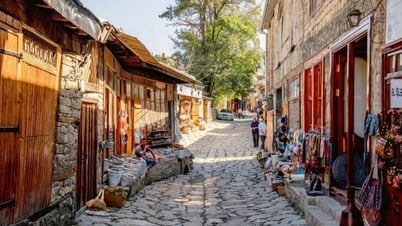



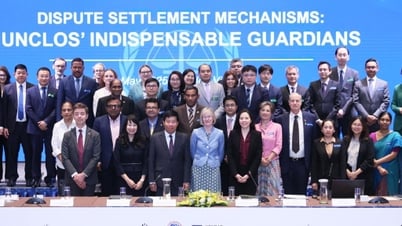

































![[Photo] Prime Minister Pham Minh Chinh talks on the phone with Singaporean Prime Minister Lawrence Wong](https://vphoto.vietnam.vn/thumb/402x226/vietnam/resource/IMAGE/2025/5/8/e2eab082d9bc4fc4a360b28fa0ab94de)











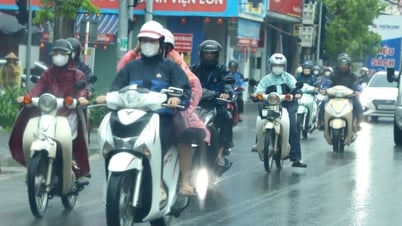

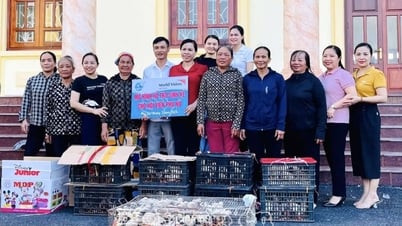

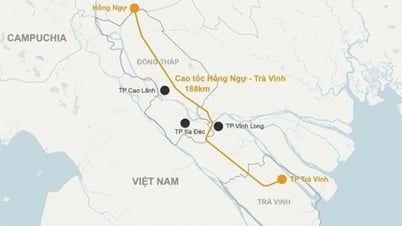


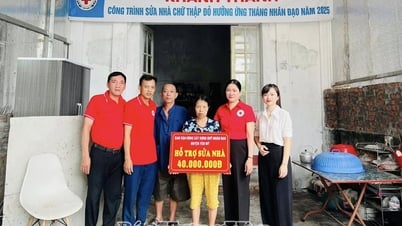













Comment (0)